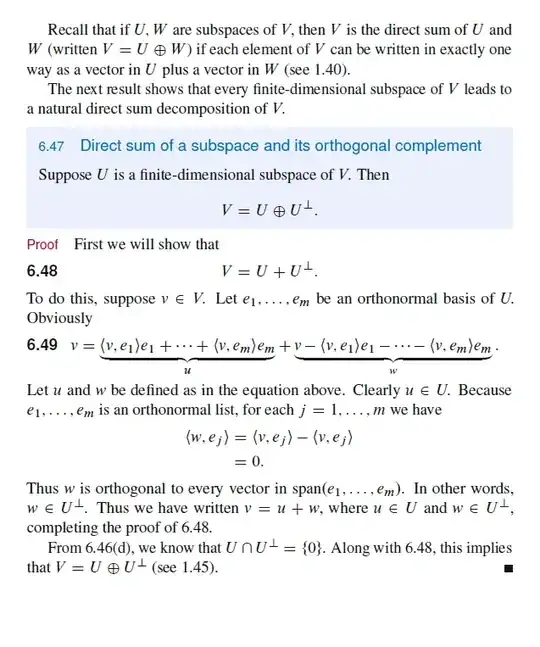Let $V$ be an inner product space over $F$. Let $W$ be a subspace of $V$. I saw that Axler's Linear Algebra Done Right claimed that if $W$ is finite-dimensional, then $V=W\oplus W^\perp$. It is trivial that $W\cap W^\perp=\{0\}$ is always true. So let us focus on $V=W+W^\perp$. As you can see in the picture, the proof for $V=W+W^\perp$ used the fact that $W$ is finite-dimensional. However, does $V=W+W^\perp$ hold when $W$ is infinite-dimensional? If so, how to prove it?
Update: I also wonder that if $W$ is finite-dimensional, must $W^\perp$ be finite-dimensional or infinite-dimensional?

$$\forall \varepsilon > 0,, \exists n_0 \in \mathbb{N} \text{ such that } n \geq n_0 \implies |x_n - x| < \varepsilon$$
A set $S \subseteq V$ is said to be closed if it contains all limits of its convergent sequences, that is if $(x_n){n=1}^\infty$ is a sequence of vectors in $S$ such that $\lim{n\to\infty} x_n = x$ then it must be $x \in S$.
– mechanodroid Sep 12 '17 at 19:29